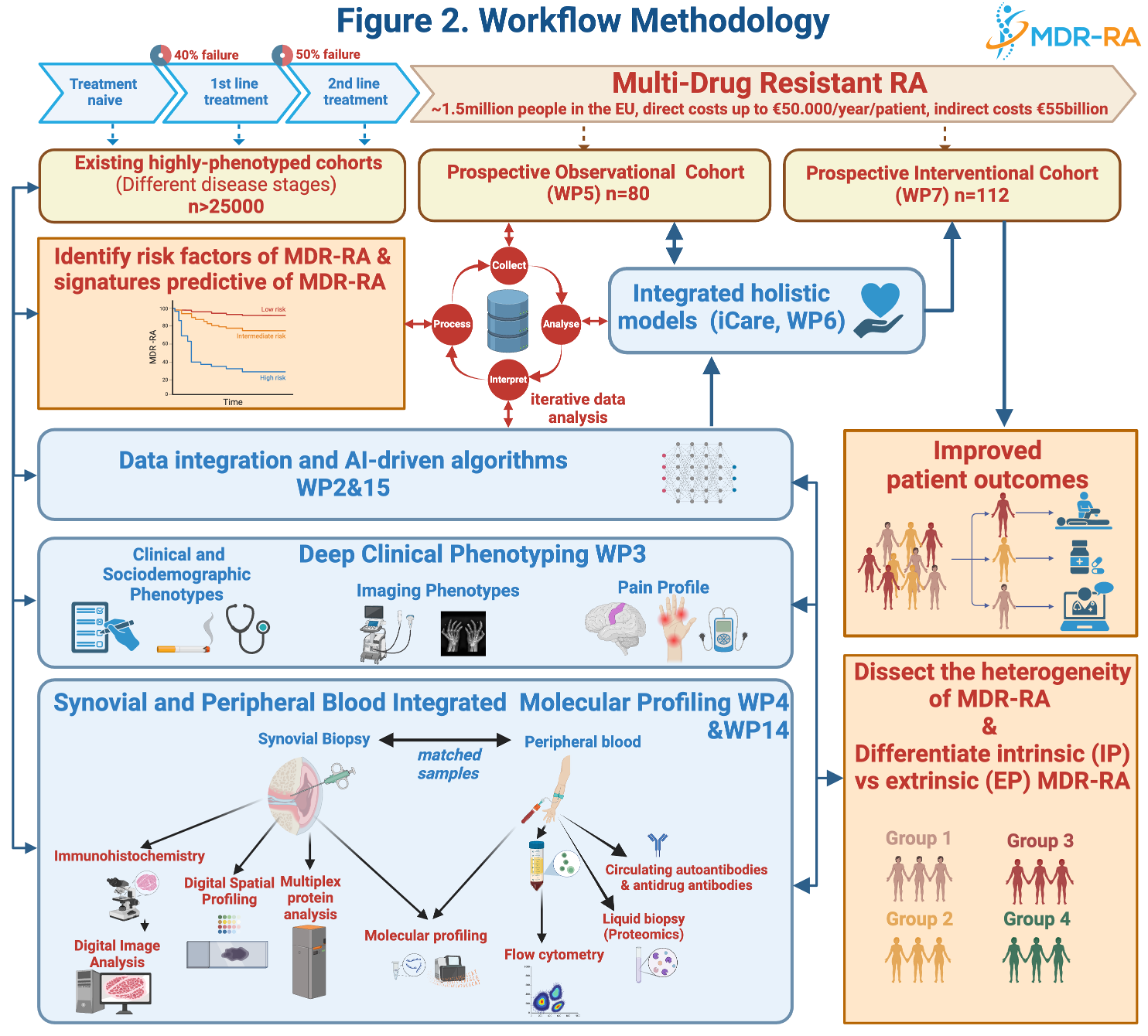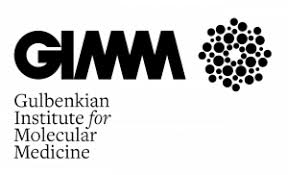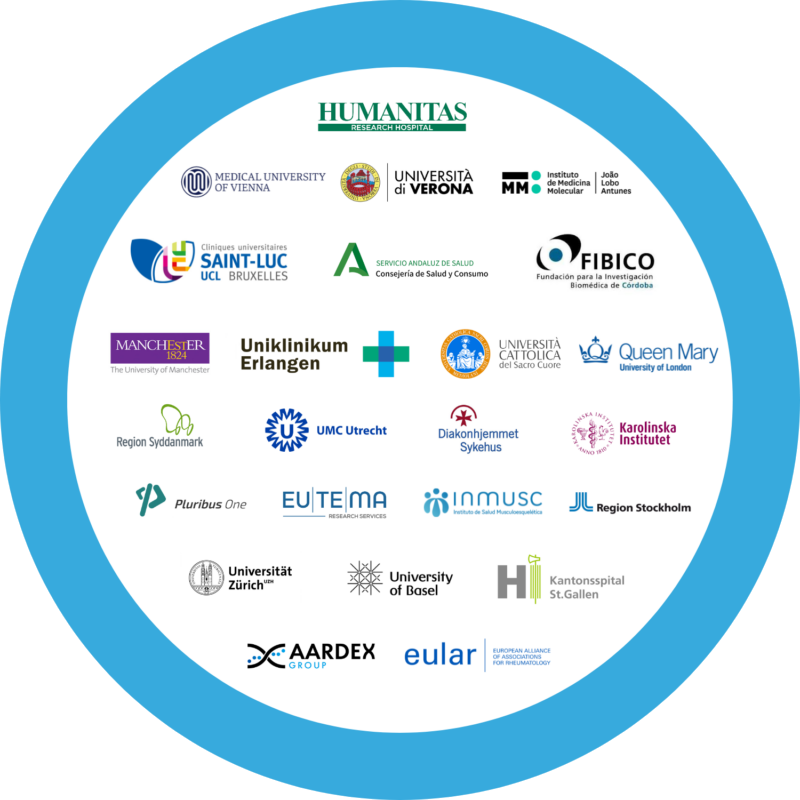About MDR-RA
Tackling Drug Resistance in Rheumatoid Arthritis

MDR-RA is a European research initiative addressing one of the biggest challenges in RA care: treatment resistance. Despite medical advances, many patients still suffer from persistent symptoms and poor quality of life.
By uniting top experts, advanced technologies, and extensive patient data, MDR-RA explores the biological roots of multi-drug resistance. The project aims to develop precise diagnostics and personalized treatment strategies, ultimately transforming patient outcomes and shaping the future of RA care.
Our Objective
Scientific foundations and strategic goals of MDR-RA

- Develop predictive algorithms for tailored diagnosis, prevention, and treatment of difficult-to-treat RA.
- Differentiate between intrinsic(disease-related) and extrinsic (e.g., psychosocial or behavioral) resistance to enable personalized care.
- Investigate the biological and environmental drivers of multi-drug resistance in rheumatoid arthritis using clinical, imaging, and molecular data.
- Translate research into real-world solutions that set new standards in RA care.
- Assess the clinical and economic value of these strategies across European healthcare systems.
- Build innovative tools like iCare-RA to help clinicians identify and manage patients at risk of MDR-RA.
Project Objectives
- Stratify difficult-to-treat RA: Identify and group MDR-RA patients using clinical, imaging, and behavioural data from large European cohorts.
- Reveal molecular drivers: Use multi-omics from biopsy samples to uncover mechanisms of drug resistance and improve prediction.
- Develop AI-powered care tools: Create the iCare-RA algorithm to integrate clinical, imaging, and molecular data for personalised treatment.
- Validate in real-world settings: Test iCare-RA in a multi-centre clinical trial to assess its clinical value and practical use.
- Evaluate health economics: Analyse cost-effectiveness and implementation pathways across European health systems.
- Build a lasting research resource: Create a rich, open-access dataset to fuel future innovation in MDR-RA care and research.

Project Approach
Towards Smarter RA Care

We’re combining molecular, clinical, psychosocial, and imaging data to develop iCare-RA—a powerful tool to identify and manage patients who don’t respond to standard RA treatments. Our goal: transform care and improve quality of life.
Our Methodology
We approach multi-drug resistant RA as a set of distinct disease subtypes driven by both biological and external factors. Using advanced clinical, imaging, and molecular profiling, we distinguish between intrinsic (MDR-IP) and extrinsic (MDR-EP) causes of resistance.
By integrating pan-European data with AI, we identify patient subgroups and disease signatures that power iCare-RA—our personalized decision-support tool, tested in clinical trials.
Our expert network and rich datasets ensure fast, reliable discovery and validation, advancing precision care for difficult-to-treat RA.

Project Approach
By integrating molecular, clinical, psychosocial, and imaging data, we’re developing iCare-RA—a predictive tool to identify and support RA patients resistant to standard treatments. The aim: better care, less disability, and improved quality of life.
Data Infrastructure, Harmonisation, and Advanced Analytics
Smart, Secure Data for RA Research
We’re building a secure, scalable infrastructure to analyse clinical, imaging, and molecular data from diverse patient cohorts. Partners contribute and apply insights across the project, guided by a dedicated data analysis team.
Using privacy-preserving tools like DataSHIELD, we perform parallel, non-disclosive analyses across sites—keeping data local while generating global insights.
Our focus:
Data harmonisation: Standardising diverse datasets for quality and interoperability.
Data integration: Applying advanced analytics to uncover new patterns in RA resistance.
Deep Clinical and Imaging Phenotyping
Understanding RA Beyond Inflammation
We’re exploring the clinical and imaging features of multi-drug resistantRA—both inflammatory (MDR-IP) and extra-articular (MDR-EP) types—to better classify, track, and predict disease progression.
Key tasks include:
- Identifying clinical, imaging, and sociodemographic markers of MDR-RA.
- Combining objective and subjective assessments to build detailed patient profiles.
- Mapping inflammation and pain patterns using tools like sensory phenotyping.
- Developing a predictive model that links clinical and molecular data for iCare-RA.
This work paves the way for more personalised, data-driven RA care.
DeepMolecular Phenotyping of MDR-RA
Revealing the Molecular Drivers of MDR-RA
We’re using deep molecular profiling of blood and synovial tissue to uncover the biological roots of treatment resistance in RA.
Key tasks include:
- Mapping the molecular landscape ofMDR-RA across patient cohorts.
- Identifying markers that distinguish MDR-IP and MDR-EP subtypes.
- Creating predictive molecular algorithms to support personalised care.
We begin with existing samples and expand from Month 6 with newly recruited patients—ensuring a scalable, data-rich approach to advance clinical tools like iCare-RA.
Building the First Comprehensive MDR-RA Biomedical Resource
Building the First MDR-RA Cohort
We’re creating the first real-world, prospective cohort of patients with multi-drug resistant RA—linking clinical, imaging, and molecular data in one powerful resource.
Key tasks include:
- Recruiting and tracking MDR-RA patients to gather longitudinal data.
- Standardising sample collection and assessments across sites.
- Validating findings to refine the iCare-RA tool.
- Establishing a long-term database to drive future research and care.
This unique resource will enable data-driven breakthroughs in MDR-RA diagnosis and treatment.
IntegratingData into the iCare-RA Clinical Decision Tool
iCare-RA: Turning Data into Action
We’re translating cutting-edge clinical and molecular research into iCare-RA—an AI-powered tool to support real-world management of multi-drug resistant RA.
Key tasks include:
- Designing the tool around clinical workflows.
- Embedding AI algorithms frompatient data.
- Adding features like e-health and clinical guidelines.
- Refining and validating with real-world feedback.
Our goal: equip clinicians with smart, data-driven support to improve treatment and outcomes in MDR-RA.
Real-World Validation of the iCare-RA Tool in Clinical Practice
Real-World Trial of iCare-RA
We’re testing iCare-RA in areal-world clinical trial, comparing it to standard care for managing multi-drug resistant RA—both groups receiving equal treatment options.
Key tasks include:
- Defining standard care across all sites.
- Setting up and running the trial at16 centres, led by HUMANITAS RESEARCH HOSPITAL (IRCCS).
- Recruiting patients, collecting data, and ensuring secure management.
- Analysing outcomes to assess iCare-RA’s impact.
This trial will provide vital evidence on how iCare-RA can improve care and outcomes in MDR-RA.
Assessing the Value and Impact of iCare-RA in Healthcare Systems
Is iCare-RA Cost-Effective?
We’re assessing the economic impact of iCare-RA in the UK and Belgium, comparing it to standard care for managing MDR-RA.
Key tasks include:
- Estimating the cost and value of iCare-RA.
- Exploring how it fits into routine practice.
- Identifying what drives cost-effectiveness.
- Studying implementation challenges and enablers, with a UK case study.
This evaluation will ensure iCare-RA delivers better care while making smart use of healthcare resources.
AdvancedMolecular Profiling in Interventional MDR-RA Studies
Advancing Molecular Insights in MDR-RA
We’re applying next-generation phenotyping to new MDR-RA patients in both interventional and observational studies—validating earlier findings and tracking treatment effects on molecular profiles.
Key tasks include:
- Analysing synovial and blood samples with advanced technologies.
- Refining and validating biomarkers in real time during the trial.
This work deepens our molecular understanding and supports more precise, personalised treatment for MDR-RA.
Advanced Data Integration and Predictive Modeling for MDR-RA
From Data to Decisions: Powering iCare-RA
We’re combining data from our trial, observational cohort, and existing studies to fully capture the complexity of MDR-RA.
Key tasks include:
- Prediction and classification: Using advanced analytics to forecast outcomes and identify patient subgroups—fueling the AI behind iCare-RA.
This integrated approach supports the development of personalised, real-world solutions for MDR-RA care.
The Partners

The MDR-RA Consortium unites 19 top academic centres, patient organisations led by EULAR-PARE, and 3 innovative SMEs across 12 European countries. This multidisciplinary team brings together leading expertise in rheumatology, data science, clinical research, health economics, and patient advocacy.
Our partners offer deep experience in molecular medicine, advanced analytics, clinical trial design, and patient-centered care, with a strong track record in EU-funded projects. We are well-positioned to achieve MDR-RA’s goals—from breakthrough research to real-world application.
By combining scientific excellence, innovation, and patient involvement, we are driving progress in understanding and managing multi-drug resistant rheumatoid arthritis—across Europe and beyond.

































